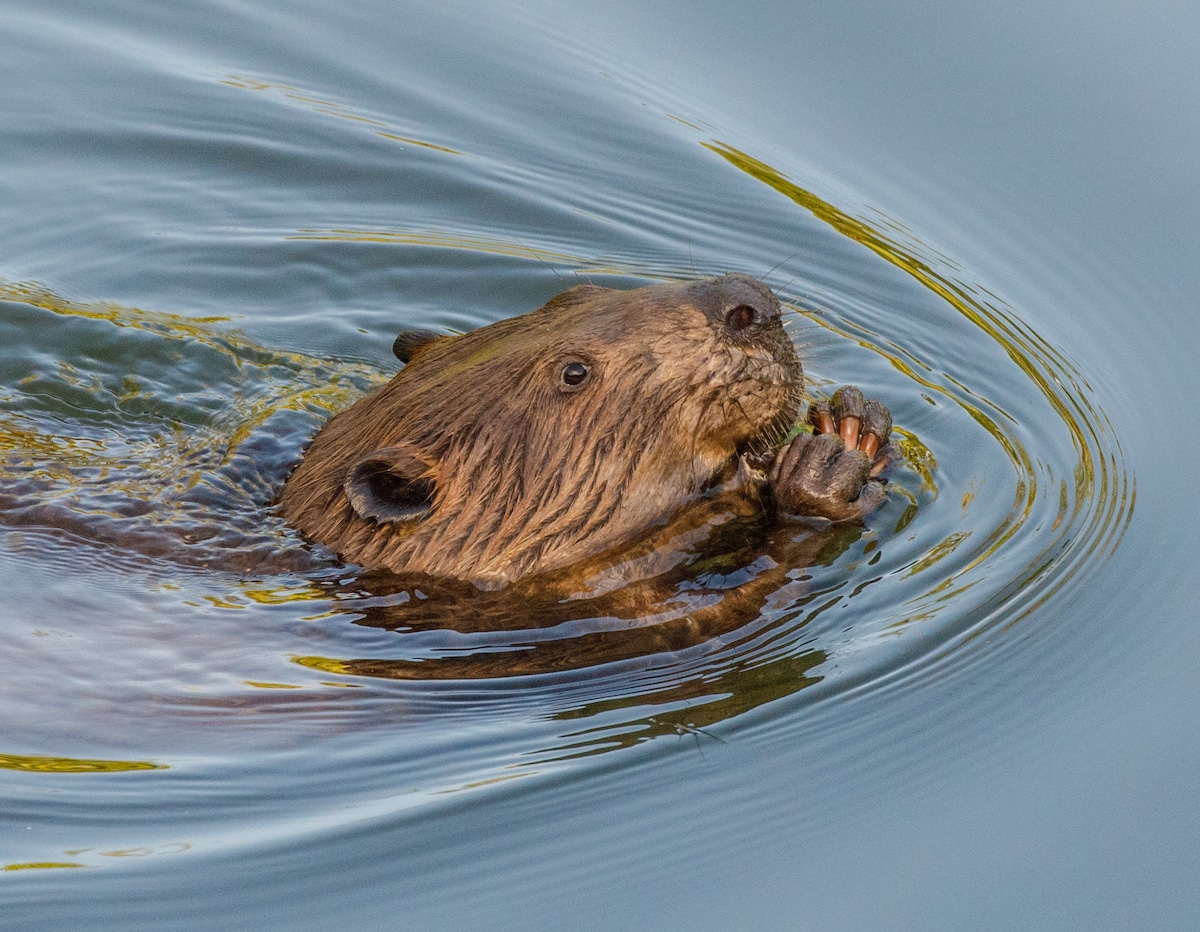On May 21, 2025, around 250 people joined the webinar introducing California’s Beaver Coexistence Training and Support Program to learn how to get involved in helping improve human-beaver coexistence in California. OAEC’s WATER Institute Co-Directors Kate Lundquist and Brock Dolman began this initiative as part of their Bring Back the Beaver campaign. Brock and Kate kicked off the webinar by reviewing beaver ecology, beaver benefits, and simple, time-proven strategies to help beavers and humans better coexist across the landscape.
The California Department of Fish and Wildlife (CDFW) is very instrumental in beaver management in the state, so CDFW’s Valerie Cook and Molly Alves, the lead staff of the state’s Beaver Restoration Program, presented to help participants understand the state’s role with beaver coexistence, beaver translocation, and how their agency interacts with permitting and assistance.
Many beaver conflicts occur with water management agencies in the state, so we were happy to feature a success story from Dave Cook with Sonoma Water. His agency had issues with beavers creating dams in Fryer Creek in downtown Sonoma that OAEC WATER Institute staff and other partners were instrumental in helping resolve. Dave outlined how they installed and have maintained beaver coexistence strategies, mitigating potential flooding.
And we heard a public-private partnership success story. US Fish and Wildlife Service’s (USFWS) Partners for Fish and Wildlife is a nationwide program that provides technical and financial assistance to private landowners seeking nonlethal beaver damage deterrents. USFWS’s Damion Ciotti played a key role in a project at Doty Ravine Preserve where Tracy Schohr’s ranching family cooperated with the landowners, Placer Land Trust, to implement beaver coexistence strategies. During the webinar, Damion spoke about how he was able to help with the project, and Tracy talked about the pros and cons of such work from a livestock manager’s perspective.
We also talked about a training opportunity to help establish new businesses or enterprises that assist Californians with beaver coexistence. Aaron Hall presented about this BeaverCorps program, which he directs nationally through the Beaver Institute. The 40-60 hour online training is coupled with hands-on mentorship to allow students to become Beaver Institute Certified Beaver Coexistence Professionals. A recent graduate of that program, Cooper Lienhart with the company Nature’s Engineers, spoke about what brought him to this program, how it worked out for him, and how he recommends others approach this opportunity.
To wrap up the webinar, Grey Hayes, manager of the Beaver Coexistence Program at OAEC, told participants how they could interact with the program to gain training or seek landowner financial support and technical assistance with beaver coexistence. Here are the links he provided:
- California Beaver Help Desk. Landowners experiencing human-beaver conflict can apply for technical and financial assistance through the newly launched Help Desk.
- Beaver Coexistence Program contact form for those needing help with coexistence. Ask for help! Operators are standing by! This form is meant for landowners or land managers seeking financial or technical assistance.
- BeaverCorps training program. Full scholarships are available to Californians seeking a career in beaver coexistence.
- WATER Institute resources on beaver coexistence. Beaver facts, coexistence strategy design, etc.
- CDFW Beaver Restoration Program
- CDFW Beaver Conflict Toolkit
Watch the full webinar below! And you can download the Q&A transcript here.







